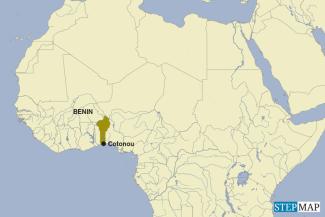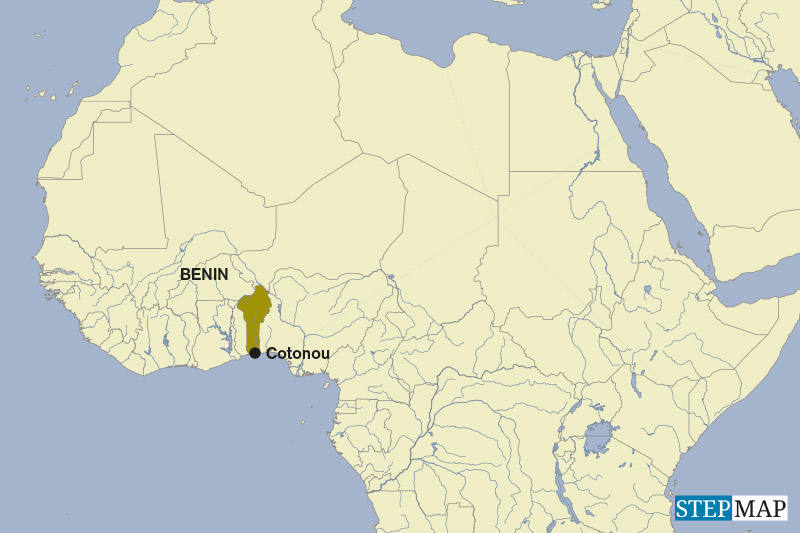Sanitation
Sinking under a wave of trash

Government authorities seem unable to cope with the problem. And many residents are giving up. Marlene S., a 25-years old fruit and vegetables seller at the Dantokpa market in Cotonou, used to yell at anyone carrying a basketful of rotting garbage on their head. ‘’I knew right away that they would dump their trash in front of my stall’’, she said. ‘’But I’ve given up the fight now. You can see for yourself! These people just won’t dispose of their refuse somewhere else.’’
Lack of regular garbage pickup has created shocking eyesores and health hazards across Benin. The sprawling and crowded agglomeration of Cotonou is badly affected by poor sanitation, blocked gutters and foul smells. Lake Nokoué is seriously polluted, with decomposing trash visible on its banks and on its murky surface. Residents often come to the lake under cover of darkness, dump trash in the lake, defecate and disappear.
Municipal authorities have failed to provide residents with regular refuse collection and disposal. Once in a while, labourers in yellow vests are seen cleaning the streets or removing mud from clogged dirt roads, especially during the rainy season. But that is the exception, as officials do not have enough trucks to collect and dispose of the mud and the trash.
Porto-Novo, a small sleepy town and the administrative capital of Benin, has similar problems. Talk about sanitation with anyone in that old colonial style town, and you will hear about its infamous Foun Foun Tokpota landfill. Scavengers go there to collect items that they can recycle and sell. They go through the garbage with their bare hands. Hungry animals including dogs, goats, sheep and pigs root through the trash for food, while black and white birds hover around. Meanwhile, toxic smoke billows from truck tyres that have been set on fire. The landfill’s polluted air alone is a serious health hazard.
In Parakou, the largest urban agglomeration in northern Benin, mountains of trash are left to rot in stagnant waters during the rainy season. The residents of Kabera, an impoverished neighbourhood, recently aired their grievances on a local radio station, saying the trash is causing fatal malaria in many young children and pregnant women, as well as a growing incidence of respiratory and eye diseases.
Contrary to the claims made for devolution of power to local governments, decentralisation is not helping to improve local services. Local officials lack the money and technical know-how to manage the problem. Several municipal authorities, including the acting mayor of Cotonou, have said they can do little to address the challenge of garbage disposal.
Volunteers and a few non-governmental organisations try to fill the gap, launching regular campaigns to remove plastic bags and other trash. But bad habits die hard: more trash appears on the streets only hours after they have been cleaned. Open defecation and urinating is another scourge. For many people in this impoverished country, health and sanitation appear to be low on their priority list.
Karim Okanla is a media scholar and freelance author based in Benin.
karimokanla@yahoo.com










